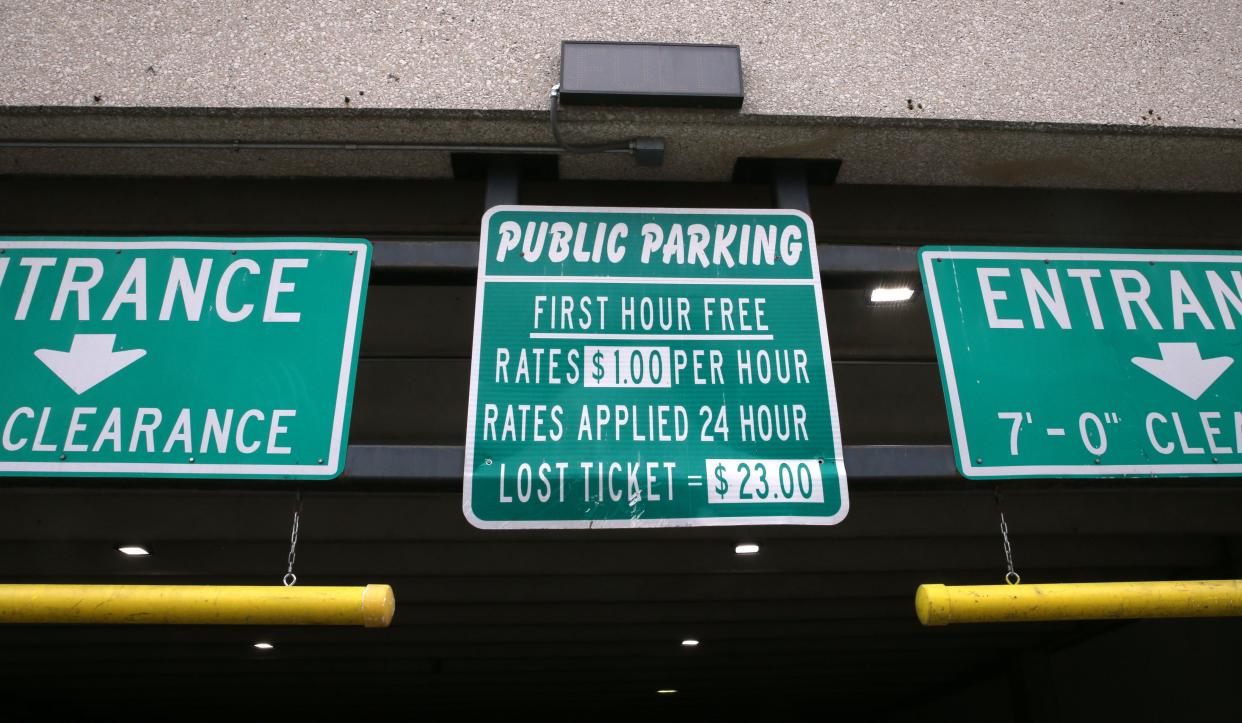Parking rates at ramps, meters will increase in Iowa City beginning July 1. What to know

The City of Iowa City is doubling the cost of parking to offset its fare-free public transit initiative and to pad the parking fund for future maintenance.
Starting July 1, city parking garages will charge $2 per hour, while some parking meters will charge $3 per hour.
The Iowa City City Council approved the Fiscal 2025 parking fees, as well as changes to trash and water rates, in May.
What impact will this have on the cost of parking?
The first hour of parking will remain free, but beginning July 1, each ensuing hour in a city ramp will cost $2.
This means rates will double at downtown lots like the Capitol Street Ramp, located near the Old Capitol Mall, and the Court Street Transportation Center. At the Chauncey Swan Ramp and Harrison Street Ramp, rates will increase by $1.25, more than doubling their old rates.
More: Iowa City’s fare-free transit program boasts 44% ridership increase in first 3 months
Iowa City parking meters that currently charge 75 cents or $1 per hour will increase to $1.50 per hour. Starting July 1, meters that charge $1.50 per hour will cost $3.
Cost of Iowa City parking tickets rises
More: Former University of Iowa women's gymnastics coach reaches settlement, will receive $449K
Fines for parking violations are also increasing on a per-violation basis.
City staff estimated that these rate increases would net more than $2 million in added revenue, a 136% boost to the parking fund. Projections estimate the balance heading into Fiscal 2026 will be $3.5 million.

Why are these rates increasing, anyway?
The additional funding will be used in several ways, according to a city report.
The money will subsidize fare-free transit in Iowa City and aid in "enhanced" upkeep of city parking ramps and the general downtown area.
The city said the new fees and fines will create a "healthier" parking fund that is entirely "self-funding." A self-sufficient fund allows the city to avoid accruing debt, such as revenue bonds, to fund projects within specific departments.
For example, if the city were interested in building a new parking ramp but did not believe it had enough money in its parking fund to support it, the city likely would need to issue a bond. Bonds are typically used to acquire money for city improvement projects.
More: Kick off summer with these seven events from live music, a drag brunch and shopping

Additional charges for trash, water and sewage
A minor increase in residential water use will impact homes with a five-eighths or five-eighths-by-three-fourths water meter. The minimum charge will rise by 26 cents to $8.78 per month.
City staff projects that these increases will add roughly $320,000 per year.
Money in the water fund, which will rise to more than $14.2 million, is being used on certain capital improvement projects and has long been accessed to repair water main breaks.
Wastewater and solid waste rates are also on the rise.
More: 'A sham': Iowa Republican leaders quickly condemn Trump guilty verdict on 34 felony counts
For solid waste, the "tipping fee" will increase by $2.50 per ton of waste disposed. The cost will facilitate a roughly 8% increase in the solid waste fund, rising to just under $2.2 million.
The minimum rate for wastewater usage will increase by 42 cents to $8.73 per month for 100 gallons or less. Staff is projecting an annual wastewater fund bump of $628,000.
Despite the rate hike, the city projects the fund will fall by five percent because of a significant overhaul of the wastewater facility and other city projects.
Ryan Hansen covers local government and crime for the Press-Citizen. He can be reached at [email protected] or on X, formerly known as Twitter, @ryanhansen01.
This article originally appeared on Iowa City Press-Citizen: Iowa City parking ramp, meter rates to double beginning July 1
